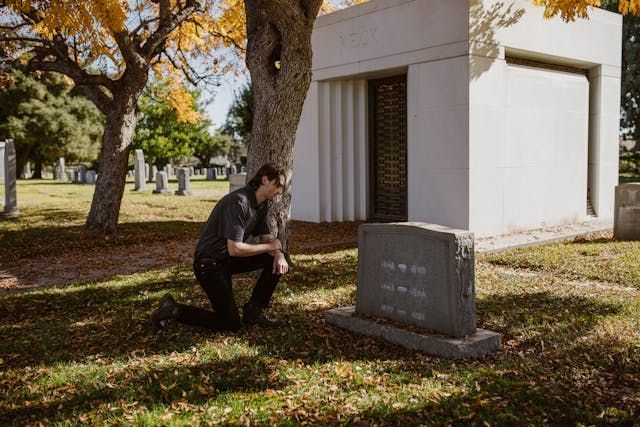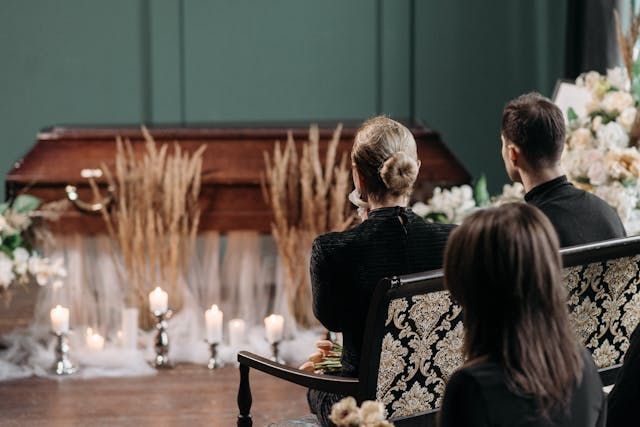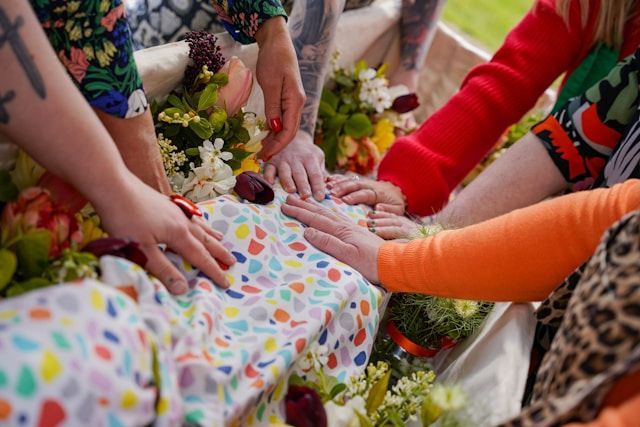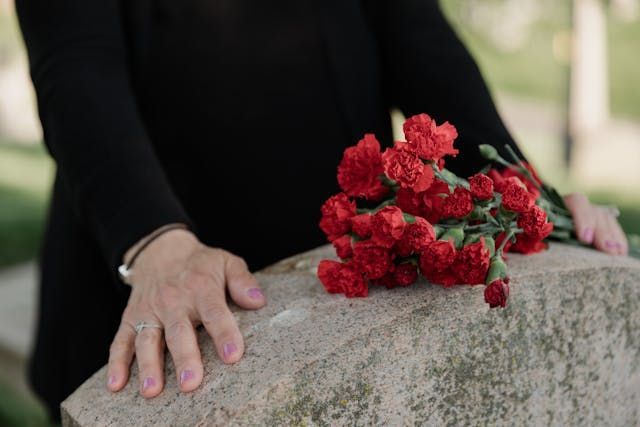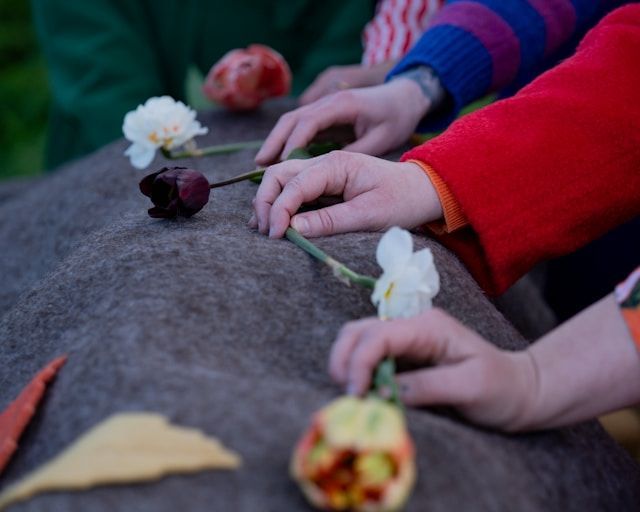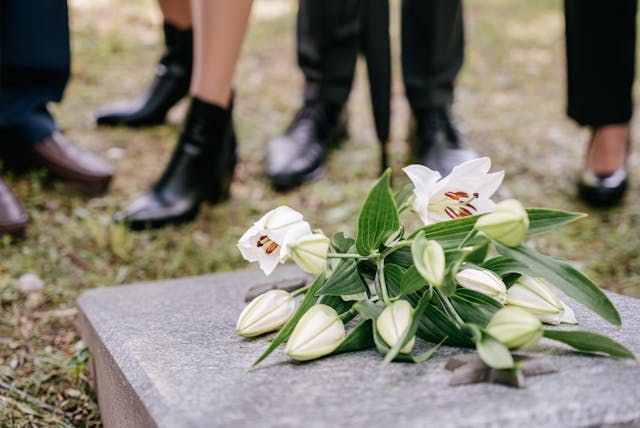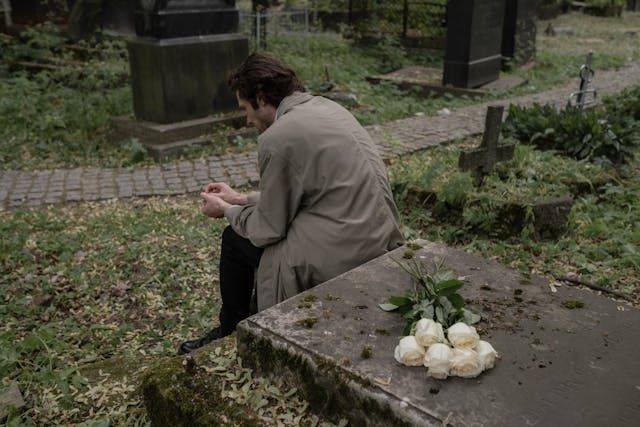Coping with the Death of a Spouse
August 1, 2023
Coping with the Death of a Spouse
Losing your life partner can turn your life upside down. Not only have you lost someone precious to you, every aspect of your day-to-day life is affected. In a way, it might feel like a part of yourself has died, too.
It’s not easy to pick up the threads of a life that was closely entwined with another. But you can find your way through this difficult time. How do you get through something overwhelming? One step at a time. Here are three struggles new widows and widowers face, and some tips for getting through them.
Managing the logistics of death while navigating grief
When your spouse dies, you’re left dealing with what feels like an avalanche of paperwork. You must request death certificates, contact Social Security, call the life insurance company, talk to the bank, update social media accounts, and so much more.
Sometimes keeping busy with these tasks can be a welcome distraction from grief. But other times, the to-do list becomes an overwhelming obstacle. Grief can sap you of your energy and motivation. When it’s hard to remember to eat and it takes all your effort to get out of bed, how are you supposed to call the bank?
What helps is knowing that you don’t need to do it all at once. Some tasks must be done right away, but others are not urgent. You don’t have to handle them all yourself, either. The funeral director will help you get the death certificates and can guide you on the next steps. A family member can handle transferring online accounts or sorting your mail. An organized friend can make a list to help you prioritize what’s important so that you can take each step one at a time.
Learning new ways to take care of yourself
Partnership is about load-sharing your daily life. When your spouse dies, you can be left shouldering burdens you’re unaccustomed to. Did she do all the cooking? Did he do all the driving? It’s easy to fall out of practice of doing tasks when you’ve relied on your partner for many years. You may need to relearn how to do things, or find new ways of doing them, and this process takes time.
It's important to be gentle with yourself. There is no shame in not knowing how to balance a checkbook or make a meal plan, no matter your age. It’s never too late to learn a new way of doing something or change your daily routine.
There’s also no shame in asking for help, especially when you’re in the midst of grief. If you’re not used to cooking for yourself, could you pay for a meal delivery service? Could a financial advisor help you create and maintain a new budget?
Just like you don’t have to do all the paperwork at once, you don’t have to return to “normal” right away, or ever. Things will never be exactly the same as before your partner passed away. But you can build a new lifestyle that accommodates your needs and abilities, one step at a time, until you have a comfortable new routine.
Finding yourself again after losing your other half
When you’ve been accustomed to being part of a “we” for a long time, losing your partner can feel like losing your identity. You grieve the death of the person you love, but you also grieve many small changes and losses. Your relationships with other friends and family might change. Your financial situation and lifestyle could change. Your day-to-day routines will change. All of those changes represent losses, and it’s perfectly natural to feel sad, angry, resentful, or conflicted about them.
Although it might be tempting to withdraw socially as you grieve the death of your spouse, it’s important that you maintain connections with loved ones and seek out new connections as well. Take it slow if you need, but try to make a point of venturing out on your own so you can begin defining yourself again as an individual. Take a class on something that interests you. Join a club or activity. Take up a new hobby. Rekindle interests and friendships that may have been put on the back burner of your life.
Remember as you move forward that you are not leaving your partner behind. Your love for them persists beyond death, and you can maintain that bond. If they have a grave or other permanent memorial, you can visit and talk to them. If their ashes have been scattered, you can visit a significant location to connect with their memory, or even write a letter or journal to them about how you feel. Even if they cannot answer, sharing the details of your day and the changes in your life can be very comforting as you go through your grieving process.
French Funerals & Cremations understands that the funeral is just one step in many toward healing from a loss. We offer grief support and counseling resources to help you through this difficult time. If you have any questions or need to arrange services for your loved one, we’re available by phone at 505-843-6333, or you can visit any of our Albuquerque funeral home locations.

